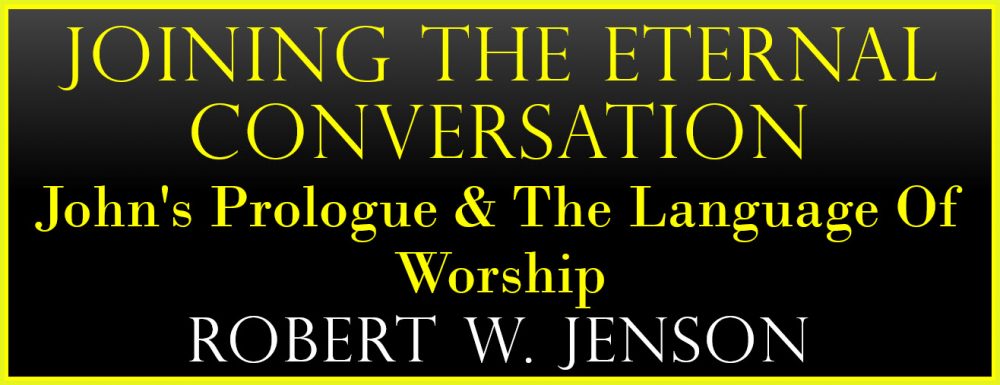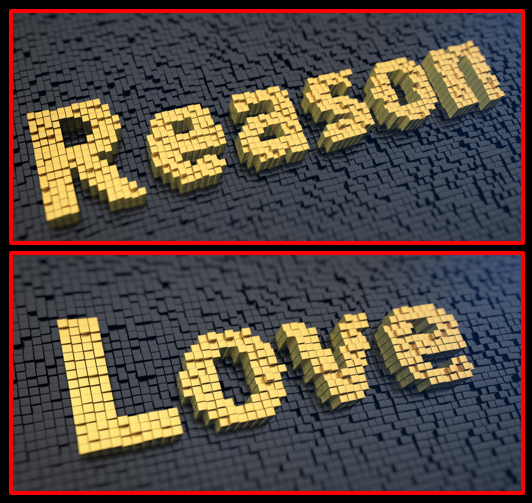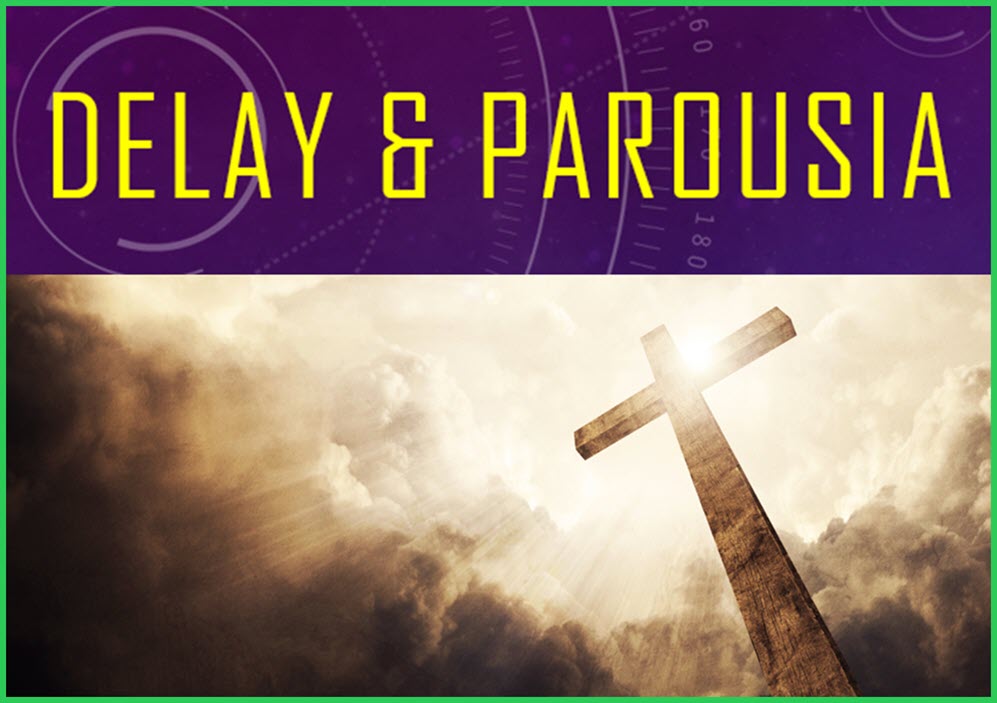God Sending Lying Spirits?
God Sending Evil Spirits?
Abraham & Isaac & Kierkegaard’s Paradox?
Cyrus & Isaiah 45:7?
The Greater Good Fallacy?
Who Incited David to Number Israel?
David’s Census and the Plague?
Who Hardened Pharaoh’s Heart?
Amalekites? Canaanites? Genocide?
Part 1
God Sending Evil/Lying Spirits?
[1] https://reknew.org/2008/01/judges-923/
[2] https://carm.org/god-send-deceiving-spirit-1kings-22-22
[3] https://www.thegospelcoalition.org/devotionals/read-the-bible/1-kings-22-1-thessalonians-5-daniel-4-psalms-108-109/
[4] http://apologeticspress.org/apcontent.aspx?category=6&article=661
[5] https://defendinginerrancy.com/bible-solutions/1_Kings_22.22.php
[6] https://derekzrishmawy.com/2015/07/31/straining-gnats-and-siding-with-pharaoh-over-the-midwives/
[7] http://www.apologeticspress.org/apcontent.aspx?category=6&article=1278
[8] http://www.gotquestions.org/evil-spirit-Saul.html
[9] ….beginning at Part 11 further down the focus is more on the “Sending Lying/Evil Spirits” areas…for the most part….
Part 2
“I form the light and create darkness, I bring prosperity and create disaster; I, the Lord, do all these things…” Isaiah 45:7
[1] https://disqus.com/home/discussion/standtoreason/did_god_create_evil_video/#comment-3501598855
[2] Abraham, Isaac, Kierkegaard’s Paradox, Cyrus, & Isaiah 45:7 at http://disq.us/p/1yhjyrv
[3] God Emotionally Tortured Abraham?? at http://disq.us/p/1yhkd08
[4] Abraham, Faith, Divine Command Theory, & Basic Reading Comprehension at http://disq.us/p/1yh7bgt
[5] Abraham, Isaac, and God’s Foreknowledge at http://disq.us/p/1yhjehw
[6] If You Redefine Christianity It’s Ridiculous https://fidedubitandum.wordpress.com/2014/05/02/if-you-redefine-christianity-its-ridiculous/
Part 3
Is It Ever “Good” To Lie?
[1] http://edwardfeser.blogspot.com/2010/11/what-counts-as-lie.html
[2] http://edwardfeser.blogspot.com/2011/02/live-action-lying-and-natural-law.html
[3] http://edwardfeser.blogspot.com/2010/11/murderer-at-door.html
[4] http://edwardfeser.blogspot.com/2010/11/is-it-wrong-to-lie-to-hal.html
[5] http://edwardfeser.blogspot.com/2012/01/smith-tollefsen-and-pruss-on-lying.html
[6] http://edwardfeser.blogspot.com/2010/11/there-is-no-santa-clause.html
Part 4
Moral Dilemmas And No Good Options:
“…in a hypothetical war we find a few hundred people hiding and the crying baby will give away the hiding place of the 100 adults, hence they’ll be found and killed. The options: we can kill the baby and save the 100 or we can let the baby cry and sacrifice (thereby) all the adults and the baby too in the end…..”
“What’s the “right” or “good” option when all logically possible options entail less than the ideal — less than Moral Excellence?” There Is No Moral Excellence In Privation.
Think it through: Nothing that is [A] outside of “The Edenic” and/or [B] outside of that Far Better Covenant yet to come can coherently be defined as Good, Lovely, or Condoned. It is painfully obvious that it is a logical impossibility for any [Pro-ABC-Sub-Narrative] to be found within any [Anti-ABC-Metanarrative]. The Old Testament simply does not exist in a vacuum. Tolerating any specific Logical Necessity surrounding “X” is not identical to Condoning X. One must FIRST address the logically necessary Means and Ends surrounding “X” and THEN make one’s case that any such Tolerance can be “Equated” on the law of identity/logic to the definition of Good, Lovely, or Condoned.
Again the Old Testament does not exist in a vacuum. How is it possible for there to be a Pro-Racist *verse* in an Anti-Racist *Metanarrative*? How that is unpacked is looked at in https://randalrauser.com/2019/11/blame-the-victim-conservative-christianity-and-a-culture-of-shaming-women/#comment-4706516949 which begins with “— SOME SAID vs. IT SAYS — You never tell us. That is why….” Also, there are similar layers as discussed in “Divine Command Theory Collapses Into A Metaphysical Absurdity” at https://metachristianity.com/divine-command-theory-collapses-into-a-metaphysical-absurdity/
Parts 5 & 6
The Fallacies of the “Evil God Challenge” and of the “Euthyphro Dilemma”
Part 5
The Evil God Challenge:
[1] https://www.thinkingchristian.net/posts/2011/11/stephen-laws-incoherent-evil-go/
[2] https://www.reasonablefaith.org/writings/question-answer/the-evil-god-objection/
[3] http://edwardfeser.blogspot.com/2011/11/broken-law.html
[4] http://edwardfeser.blogspot.com/2010/10/laws-evil-god-challenge.html
[5] http://edwardfeser.blogspot.com/2011/11/crickets-still-chirping.html
[6] https://www.reasonablefaith.org/writings/question-answer/if-isiss-god-were-real-would-i-be-obliged-to-follow-him
Part 6
The Euthyphro Dilemma:
[1] http://edwardfeser.blogspot.com/2010/10/god-obligation-and-euthyphro-dilemma.html
[2] http://edwardfeser.blogspot.com/2011/04/one-god-further-objection.html
[3] http://edwardfeser.blogspot.com/2011/07/does-morality-depend-on-god.html
[4] https://www.reasonablefaith.org/writings/question-answer/euthyphro-dilemma
[5] https://www.reasonablefaith.org/writings/question-answer/the-euthyphro-dilemma-once-more/
[6] https://www.reasonablefaith.org/media/reasonable-faith-podcast/euthyphro-argument-revisited/
[7] https://www.reasonablefaith.org/writings/question-answer/the-plausibility-of-grounding-moral-values-in-god/
Part 7
The Fallacy of The Greater Good Theodicy —&— Gratuitous Evil Is A Metaphysical Impossibility
[1] https://randalrauser.com/2018/08/can-violence-ever-serve-a-redemptive-purpose/#comment-4071850429
[2] …that is also linked with http://disq.us/p/1vc9vwd
[3] https://str.typepad.com/weblog/2016/07/forced-love-is-the-wrong-way-to-look-at-it.html?cid=6a00d83451d2ba69e201b7c87fe182970b#comment-6a00d83451d2ba69e201b7c87fe182970b
Part 8
A paraphrase,
“I don’t think there is any such thing as a logically necessary created good (and if there is, I’d say: “Well, that’s just a given“). And of course, on Christianity every created thing comes, ultimately, from God. D. Hart comments about “…God – the infinite wellspring of being, consciousness, and bliss that is the source, order, and end of all reality – is evident everywhere, inescapably present to us, while autonomous “nature” is something that has never, even for a moment, come into view….” So, to say that a created thing is “from God” is to add zero information content. So again I would maintain that, on Christian terms, to say “you are a blessing from God” is semantically equivalent to saying “it is good that you are here”. I affirm your objection to the “suffering is somehow good” line of thinking. People say all sorts of really screwy and hurtful things when it comes to interpreting the meaning of suffering. It is a thin line between saying, on the one hand, “the opportunity that God gives me to respond to suffering is a gift” and saying, on the other hand, “my suffering is a gift from God” or (even worse) “the purpose of my suffering is to provide the precondition for the virtuous response of others”. In my view, many people fall off the balance beam while trying to walk the line between these two subtly different, but very significantly different, modes of thought.” (hillclimber/paraphrased)
Part 9
Genocide? Amalekites? Canaanites? Marry One’s Rapist? Etc.?
We’ll start with a brief look at some excerpts from the following three which cover a wider range of topics but have several segues here – [A] http://christianthinktank.com/rbutcher1.html and also [B] http://christianthinktank.com/qamorite.html and also [C] http://christianthinktank.com/midian.html
Begin Excerpt:
Even in the little section on the Amalekites, the description of the situation doesn’t even come close to what we consider ‘genocide’ today. Most (but not all) things considered genocide today involve groups internal to the country in question, and they were either killed outright by their own government (sometimes slowly through torture and abuse) or deported to a place of sure-to-kill-them environment. Academic definitions of genocide exclude combat deaths and noncombatants that die as a by-product of military action. It generally denotes the deliberate killing of someone solely because of their indelible group membership (indelible is the term used for race, ethnicity, nationality etc.–that characteristics that are ‘indelible’). [For one of the major authorities on this subject, see the work of R.J. Rummel at www2.hawaii.edu/~rummel.]
Consider some of the better-known cases:
-
- The government of the Ottoman Empire deported two-thirds or more of its estimated 1-1.8M Armenian citizens during WWI. They were forced into the deserts of present-day Syria, and most died due slowly to starvation and dehydration. This was an internal group that was forced out of the country into the desert to die.
- The Nazi genocidal actions against the Jews, the Roma, etc. were also initially targeted at internal people.
- During WW2, the government of Croatia killed an estimated 200-350K of its internal Serbian citizens.
- Pol Pot’s Khmer Rouge regime in Cambodia killed 31% of its own population, apprx 2 million people (although some of this would be considered ‘democide’ and based on ‘delible’ characteristics such as political alignment, instead of ‘genocide’ proper).
- In Rwanda, between 500k-1M of the Tutsi ethnic group (all internal) were killed by the Hutu ethnic group (fighting had been going on between them for some time).
Notice how extremely different these are from the case of the Amalekites:
-
- They are NOT an internal group
- They are NOT a minority group
- Amalekites are NOT targeted because of their Amalekite-ness (since they were welcome as immigrants in Israel)
- They are never under the government control of Israel.
- They are not pursed and hunted in other countries for extermination.
…..What this means–although it would not bear on the main ethical sensitivity here–is that it is historically inaccurate to label this military action as ‘genocidal’. (This is still the case, EVEN IF one ONLY is talking about the killing of the families of the warriors. There are none of the defining elements of genocide–as the term is used by experts–present in the accounts of this initiative.) Let’s be clear on this–I am not exploring how to “justify a genocide”, because in the first place, it is NOT genocide. [Interestingly, the only case we have in the bible of something approaching genocide is in the book of Esther. Haman, a prominent official, develops a plot in which the internal people will be allowed to attack, kill, and plunder the internal Jews in the nation. This is very close to genocide, and it is quite ironic that Haman is called an Agagite, and said to be an Amalekite by Josephus in Ant. 11.209.]
End Excerpt.
The fundamental observation across the centuries is this: God doesn’t play favorites as all vectors move towards Christ. God said that he raised up Israel in part ((…not in whole…)) to judge the Canaanites for their sins. (Deuteronomy 9:5) But then God turned around and judged Judah when they did the same thing by letting other nations conquer them. That is, again, the antithesis of “Genocide” and any “Insider/Outsider” Group-Think. Instead we find across the centuries the syntax of God referencing the same syntax which we find in all roads converging in Christ as descendants of all of the Old Testament’s members including descendants of Gentile Prostitutes are found in the “Offensive” Ancestry of Christ.
“Genocide” and the various arguments which seek to affirm it are at times self-defeating.
For example:
Many folks seeking to affirm [Genocide] will often begin by ((rightly)) correcting one [Error] in this or that use of and interpretation of some [Initial Phrase/Word]. So they start there by ((rightly)) debunking and they do so by ((rightly)) pointing out that the [Initial Phrase/Word] suffered a key [Error] and that [Error] was that its interpretation only survived after it was [expunged of all context].
So far so good. But, then, those seeking to affirm [Genocide] too often continue forward by committing that very same [Error] of [expunging all context] on the flip side with THEIR chosen Pet-Project vis-à-vis THEIR chosen topic of this or that [New Phrase/Word].
For example many will correct the error of [expunging all context] from a box labeled [one phrase] which is [“kill all that breathes”] so that then the [LITERAL FULL STOP] box of [“kill all that breathes”] is rightly shown to be ridiculous, uninformed, and expunged of context not ONLY of history and linguistics but ALSO of Scripture’s wider Metanarrative with respect to Creation, Being, Privation/Lack of Being ((with our without a Fall, it makes no difference)), the Perfection of Being, and so on. So far so good….. but… then….
But then we find that those same folks will inexplicably commit that SAME error as they expunge all context from their OWN analytic of, say, the [one word] box which is, for example, say, [“Herem”] so that then that new / their new [LITERAL FULL STOP] box is “swapped out” in exchange for the earlier “literal-full-stop” box – which is to say that they’ve merely inserted their new box into the narrative as the newly defended [Ridiculously Expunged Of Context] despite the fact that their new term or phrase ITSELF has just suffered the very SAME “disqualification” which the INITIAL [one phrase] suffered – namely the [Error] of [expunging all context].
The term “Harem” is discussed in juxtaposition to ((in contrast to)) the phrase “kill all that breathes” at https://randalrauser.com/2018/06/the-lost-world-of-the-israelite-conquest-a-review and RR states an obvious segue:
“Likening a particular ethnic or religious or cultural group to cancer? It’s a horrifying analogue, particularly as it calls to mind countless other instances of dehumanizing genocidal rhetoric….”
Obviously RR is correct, but the sentiment doesn’t actually apply UNLESS one first forces it into committing the aforementioned [Error] and ((thereby)) simply replacing one Expunged-Of-Context “box” for another Expunged-Of-Context “box”. One of a few replies made to that apparent ((…or hypothetical…)) move to simply swap out one such box for another identical box is in its comment section / thread at https://randalrauser.com/2018/06/the-lost-world-of-the-israelite-conquest-a-review/#comment-3940839919 and is in part copied ((with some edits)) here:
Your point about the book’s possible misstep seems plausible. The reason is that the reference to “…like a cancer…” is no more informative than is the term “All” in “Kill All That Breathes” (…or Egypt’s 40 years of “No-Life” and so on in that oh-so-often-repeated tool of grammar etc….). Each is uninformative As-Is. One has to allow Scripture and history to do the talking, not “just” a verse of “syntax-full-stop”. Obviously over the last 50 years or so the term “All” had to be informed in that sense and (painfully) still to this day our Non-Theist friends don’t want to let go of yesteryear’s supposedly “literal-narrative” by which what is meant is instead yesteryear’s “historically-uninformed narrative“. Here too for example, the reference to Cancer makes no sense at all if left standing in mid-air given the following fact, quoted from another source:
“….Israel’s own occupation of the land was conditional; Israel too would be “..utterly destroyed..” if it engaged in the defiling practices of the Canaanites (Lev. 18: 25– 28 ). Indeed, later the Israelites would be judged— removed from the land through exile— because they violated the terms of the covenant….”
Israel undergoes the SAME “like a cancer” and the SAME “utter destruction” and yet Israel is not “the-proverbial cancer” in any sense of the “error” made earlier by expunging context and, also, still again Israel is not “In-Genocide-Like-Fashion-Utterly-Destroyed-By-God” in that “exile”. But wait. “Utterly Destroyed?” But that “Literal” sense didn’t happen and yet that Promise WAS kept in that God DID “utterly destroy” Israel and God DID “remove from use like a caner” vis-à-vis that proverbial Exile. And that took place over centuries – not in one “swoop” of “Kill All That Breathes” as Israel is absorbed into other nations, alive and well even as they are overcome and conquered in many senses while yet retaining their own life and identity in many senses even while losing it in many senses.
Neither the facts of history, nor the actual metanarrative, nor ancient biblical and extra-biblical “linguistics” support any sort of “Full-Stop” appeal to the long-ago debunked error of “Old-English-Literalism-Full-Stop” in any sort of “….like a cancer…” or “…utterly destroy…” or “…all that breathes…”
One of the comments ((…not by RR…)) mentioned that the Christian does not value the “…literal interpretation…”
My reply was as follows:
“I think you mean to affirm a non-literal interpretation, yes? If you believe that “All That Breathes” is a bit of syntax that is mysteriously immune to the facts of history then you believe that we are to read about a fiction (…God commanded the killing of all that breathes…). But we know better. So it’s not clear what you mean by “literal”. That word ((…literal…)) isn’t supposed to mean “historically-uninformed”.”
More Context On The Canaanites:
Covenant Theology finds the Canaanites and other proverbial outsiders in Shechem within Joshua chap. 8 vis-à-vis the covenant renewal ceremony, which mirror’s Israel’s own future experience in Israel’s exile. There again we find that no identity is ever “Utterly Destroyed” nor can we find any supposed Outsider/Insider missing from that seamless Stream of “Offensive” Ancestry within Christ.
Covenant Theology yet again in other forms is also too often missing from treatments of Noah and the Flood in juxtaposition to the whole “Son of Ham v. Racism” discussion as we observe the fact that too often so many tend to “leave out” facts which discredit the whole “…son of Ham… global flood…” package ((…a package which, BTW, still can’t affirm racism even if we grant a global flood unless one again selectively isolates bits of Scripture from other bits of Scripture…)). And so on.
The reason that Noah, Regional, All, and so on overlaps is because it’s all the same set of missteps leading some of our Non-Theist friends to cling to their cherished childhood tales of yesteryear. But information is better now thanks to an ever growing pool of technology and data and context.
And observation:
“….A similar phenomenon occurs with the case of the Amalekites, the Babylonian invasions, and the sacking of the Jebusite city of Jerusalem. In each case a battle is narrated in totalistic terms of complete destruction of all the people, yet later narration goes on to assume matter-of-factly that it did not literally occur. The fact that this happens on multiple occasions in different books rapidly diminishes the probability that these features are coincidental or careless errors. Why is it that almost every time a narration of “genocide” occurs, it is followed by an account that presupposes it did not happen? These facts significantly raise the probability that this is a deliberate literary construction by the authors….” (Matthew Flannagan)
Various references to syntax of something akin to “…like a cancer…” make no sense at all if left standing in mid-air given the following fact, quoted from another source:
“….Israel’s own occupation of the land was conditional; Israel too would be “..utterly destroyed..” if it engaged in the defiling practices of the Canaanites (Lev. 18: 25– 28 ). Indeed, later the Israelites would be judged— removed from the land through exile— because they violated the terms of the covenant….”
It is worth repeating: Israel undergoes the SAME “like a cancer” and the SAME “utter destruction” and yet Israel is not “the-proverbial cancer” in any sense of the “error” made earlier by expunging context and, also, still again Israel is not “In-Genocide-Like-Fashion-Utterly-Destroyed-By-God” in that “exile”.
Think it through: “Utterly Destroyed?” But that “Literal” sense didn’t happen and yet that Promise WAS kept in that God DID “utterly destroy” Israel and God DID “remove from use like a caner” vis-à-vis that proverbial Exile. And that took place over centuries – not in one “swoop” of “Kill All That Breathes” as Israel is absorbed into other nations, alive and well even as they are overcome and conquered in many senses while yet retaining their own life and identity in many senses even while losing it in many senses.
Think it through: Neither the facts of history, nor the actual metanarrative, nor ancient biblical and extra-biblical “linguistics” support any sort of “Full-Stop” appeal to the long-ago debunked error of “Old-English-Literalism-Full-Stop” in any sort of “….like a cancer…” or “…utterly destroy…” or “…all that breathes…” — and so on.
Think it through: Nothing that is [A] outside of The Edenic and/or [B] outside of that Far Better Covenant yet to come can coherently be defined as Good, Lovely, or Condoned. It is painfully obvious that it is a logical impossibility for any [Pro-ABC-Sub-Narrative] to found within any [Anti-ABC-Metanarrative]. The Old Testament does not exist in a vacuum.
Think it through: Tolerating any specific Logical Necessity surrounding “X” is not identical to Condoning X. One must FIRST address the logically necessary Means and Ends surrounding “X” and THEN make one’s case that any such Tolerance can be “Equated” on the law of identity/logic to the definition of Good, Lovely, or Condoned. The Old Testament does not exist in a vacuum – see the quote of “GM” a few paragraphs down from here. Recall from earlier the question of, How is it possible for there to be a Pro-Racist *verse* in an Anti-Racist *Metanarrative*? How that is unpacked is looked at in https://randalrauser.com/2019/11/blame-the-victim-conservative-christianity-and-a-culture-of-shaming-women/#comment-4706516949 which begins with “— SOME SAID vs. IT SAYS — You never tell us. That is why….”
Think it through: The “range” or the “degrees of change” (and so on) from what many term “The Edenic” to that of the “New Creation” is far, far wider than any one-verse or one-chapter “slice” of “Sinai” (or any other X). All “definitions” begin and end in the egalitarian topography of the Trinitarian Life. Why? How? Well… think it through… Stand To Reason teaches that we ought Never Read A Verse – meaning of course that there is never “one verse” which ought to stand alone in any sort of One Verse Theology. A basic rule of all communication is that Meaning always flows from the top down, from the larger units to the smaller units ((…think of “Transposition” as per https://edwardfeser.blogspot.com/2015/05/lewis-on-transposition.html …)). Before getting to GM’s quote, that concept of Meaning Necessarily Flowing Downhill merits one more “think it through” as per the following:
Think it through: The key to the meaning of any verse comes from the paragraph, not just from the individual words, and then the key to the meaning of any paragraph comes from the chapter, not just from the individual paragraphs, and then the key to the meaning of any chapter comes from the specific book, not just from the individual chapters, and then the key to the meaning of any individual book in Scripture comes from the Whole Metanarrative that is [Scripture] and not just from the individual books, and then the key to the meaning of the Metanarrative comes from logical lucidity vis-à-vis ontological referents in a specific Metaphysic, not just from [The-Bible], and then the key to the meaning of the Map that is the Metaphysic comes from the Terrain that is the Trinitarian Life and not just from the Metaphysic, and that Terrain sums to Timeless Reciprocity & Ceaseless Self-Giving vis-a-vis Processions vis-a-vis the Trinitarian Life even as robust explanatory power on all fronts teaches us hat just as it is incoherent to say “Physics” somehow “Comes-From” that physics book over there on the shelf, so too it is incoherent to say that Metaphysical Naturalism or that the Christian Metaphysic either does or “can in principle” somehow “Come-From” ANY-thing that reduces to a World-Contingent Explanatory Terminus.
“GM” is the author of the following quote and it brings more light to the fact that tolerating any specific Logical Necessity surrounding “X” is not identical to Condoning X. One must FIRST address the logically necessary Means and Ends surrounding “X” and THEN make one’s case that any such Tolerance can be “Equated” on the law of identity/logic to the definition of Good, Lovely, or Condoned. Here’s GM’s observation:
“This is part of the problem of this whole conversation. One half is to accurately describe what was going on in the Old Testament…. and one is the moral vision of the Old Testament as a whole. It’s absolutely vital to understand that the Mosaic law was not God’s ideal, it was God working with a certain people group in a certain cultural context to fulfill the Abrahamic covenant of bringing a certain kind of blessing to the world (a savior and kingdom of God). That the law was not God’s ideal is apparent in the narrative of the development of the law, God explicitly saying so through Jeremiah and Jesus himself saying that they were granted laws, not because they are good in of themselves, but were accommodations to the hardness of their hearts, and asking more of them would have been futile. And so on. The perfectly egalitarian human relationships of Genesis 2 is the ideal moral paradigm of the Old Testament….. ……the overarching argument involves the necessity to point out that none of this is representative of God’s ideal. You make a huge jump from tolerance to endorsement from God’s perspective that doesn’t take into account the moral vision of the biblical narrative……. the job of the critic is to demonstrate the premise of God’s future-oriented, creation repairing agenda as a falsehood, and that the Sinai covenant represents His ideal for all mankind, forever. Until the critic does that, trying to force “endorse” into the key hole of temporary, forward looking tolerance [of things we’re told He hates] is dialectical wishful thinking……”(by GM)
Related Comments:
https://randalrauser.com/2018/06/the-lost-world-of-the-israelite-conquest-a-review/#comment-3940839919 which opens with “R.R., Your point about the book’s possible misstep seems plausible. The reason is that the reference to “…like a cancer…” is no more informative than is the term “All” in “Kill All That Breathes” (…or Egypt’s 40 years of “No-Life” and so on in that oh-so-often-repeated tool of grammar etc….). One has to allow Scripture and history to do the talking, not “just” a verse of “syntax-full-stop”. Obviously over….”
https://randalrauser.com/2018/06/the-lost-world-of-the-israelite-conquest-a-review/#comment-3940439271 which opens with “Yes Israel and its neighbors most certainly had wars. That’s not a stopping point though with respect to the nature of God’s command. Who was…..”
https://randalrauser.com/2018/06/the-lost-world-of-the-israelite-conquest-a-review/#comment-3940465938 which opens with “Giving up one’s cherished childhood beliefs is difficult. Nonetheless when new information threatens such beliefs it’s best to value truth over sentiment. Leveling cities in Germany & 1945 killed “ALL” that breathes… Men, women, children, animals and of course such measures were….”
https://randalrauser.com/2018/06/the-lost-world-of-the-israelite-conquest-a-review/#comment-3940801977 which opens with ““…literal interpretation…” I think you mean to affirm a non-literal interpretation, yes? If you believe…”
https://randalrauser.com/2018/06/the-lost-world-of-the-israelite-conquest-a-review/#comment-4487466901 which opens with “— It’s Not All or None — The two notions of a. “Sin was all up in the whole show as the reason for it all” and of b. “Sin had nothing to do with any of it” are both……”
https://randalrauser.com/2018/06/the-lost-world-of-the-israelite-conquest-a-review/#comment-4468353699 which open with “Kill All That Breathes …and/or… It Wasn’t Because of Evil – Before “linguistics” a brief observation that the notion that [burning kids alive] and various other sins — and so on — were A. ignored by God for several hundred years and were B. in fact NOT a part of the causal architecture behind the forced regime change are….”
https://randalrauser.com/2018/06/the-bible-depicts-god-commanding-moral-atrocities-should-we-believe-it/#comment-3958459603 which opens with “Why are you claiming that Sinai does not regulate, permit, and work-around X’s which God expressly hates? The OT and NT both claim and also demonstrate otherwise. It’s not subtle at all. You seem stuck in a few verses or in a chapter or two. Is that how you typically go about interpreting reality? Little [boxes] all floating in isolation? BTW, the rest is easy — but….”
https://randalrauser.com/2018/06/the-bible-depicts-god-commanding-moral-atrocities-should-we-believe-it/#comment-3958500420 which opens with “With respect to what Scripture defines as evil you seem to agree with the OT and NT in defining all murder and all rape and so on as evil. That’s fine as far as it goes. However, one cannot read, say, Винни-Пух and apply the same premises when one is reading, say, Война и мир …… After all, if Winnie equates to Tolstoy well then…. But that’s silly. Instead, there’s the oh-so-obvious contours of real, actual humanity and real, actual evil and real, actual “necessary means” if we are going to talk either about love’s egalitarian form or about the necessary means v. the perfection of being and those just are the proverbial Christian Narrative. A few basic examples……”
https://randalrauser.com/2018/06/okay-so-laura-ingalls-wilder-was-a-racist-now-what/#comment-4301533504 which opens with “Part 1: Amalekites? Conquest? Sinai? Condone? Moral Excellence? Means & Ends?” ((…note that some of its own hyperlinks within the comment go to STR’s older platform which has sense been removed from their blog and so may end in a page of “cannot find” and etc….))
https://randalrauser.com/2018/06/okay-so-laura-ingalls-wilder-was-a-racist-now-what/#comment-4302871982 which opens with “Part 2: “Amalekites? Conquest? Sinai? Condone? Moral Excellence? Means & Ends?” ((…note that some of its own hyperlinks within the comment go to STR’s older platform which has sense been removed from their blog and so may end in a page of “cannot find” and etc….))
Rape In The Bible? Marry One’s Rapist? Numbers 31 & Deuteronomy 21 & Moabite/Midianite Question — 1 of 54 “Tweets” is at https://twitter.com/M_Christianity/status/1260988819849043968?s=20 and that continues through to 54 of 54 “Tweets” which is at https://twitter.com/M_Christianity/status/1261005348879708161?s=20
Part 10:
Who Incited David to Number Israel?
David’s Census and the Plague?
Who Hardened Pharaoh’s Heart?
- Who Incited David to Number Israel? http://apologeticspress.org/apcontent.aspx?category=6&article=784
- David’s Census and the Plague http://apologeticspress.org/apcontent.aspx?category=11&article=2237
- Who Hardened Pharaoh’s Heart? http://apologeticspress.org/apcontent.aspx?category=11&article=1205
- Part 1: Amalekites? Conquest? Sinai? Condone? Moral Excellence? Means & Ends? – at http://disq.us/p/1z50shs which is also linked with https://randalrauser.com/2018/06/okay-so-laura-ingalls-wilder-was-a-racist-now-what/#comment-4301533504
- Part 2: “Amalekites? Conquest? Sinai? Condone? Moral Excellence? Means & Ends?” – at http://disq.us/p/1z5th9q which is also linked with https://randalrauser.com/2018/06/okay-so-laura-ingalls-wilder-was-a-racist-now-what/#comment-4302871982
- Divine Command Theory Collapses Into A Metaphysical Absurdity https://metachristianity.com/divine-command-theory-collapses-into-a-metaphysical-absurdity/
- Objective And Irreducible Evil Exists Therefore Objective And Irreducible Good Exists Therefore God Exists https://metachristianity.com/objective-and-irreducible-evil-exists-therefore-objective-and-irreducible-good-exists-therefore-god-exists/
- God Sending Lying And Evil Spirits? Abraham And Isaac? Cyrus And Isaiah 45:7? The Greater Good Fallacy? https://metachristianity.com/god-sending-lying-spirits-god-n-sending-evil-spirits-n-abraham-n-isaac/
A brief list of references regarding “Calvinism” and “Who Hardened Pharaoh’s Heart” and so on:
- https://soteriology101.com/2018/06/03/tim-keller-3-objections-to-the-calvinistic-doctrine-of-election/
- https://www.reasonablefaith.org/podcasts/defenders-podcast-series-2/doctrine-of-man-part-17/doctrine-of-man-part-17/
- https://www.reasonablefaith.org/writings/question-answer/does-the-atonement-imply-universalism
- https://www.reasonablefaith.org/writings/question-answer/gods-unconditional-love/
- Who Hardened Pharaoh’s Heart? http://apologeticspress.org/apcontent.aspx?category=11&article=1205
- “A” through “E” As Per: a. https://disqus.com/home/discussion/standtoreason/can_genuine_love_only_be_a_product_of_free_will_video/#comment-3591245231 and b. https://disqus.com/home/discussion/standtoreason/can_genuine_love_only_be_a_product_of_free_will_video/#comment-3591240731 and c. https://disqus.com/home/discussion/standtoreason/can_genuine_love_only_be_a_product_of_free_will_video/#comment-3591259515 and d. https://disqus.com/home/discussion/standtoreason/can_genuine_love_only_be_a_product_of_free_will_video/#comment-3591342407 and e. https://disqus.com/home/discussion/standtoreason/is_the_gospel_central_stand_to_reason/#comment-3297824378
- The following quote:
Quote:
“God sovereignly decreed that man should be free to exercise moral choice, and man from the beginning has fulfilled that decree by making his choice between good and evil. When he chooses to do evil, he does not thereby countervail the sovereign will of God but fulfills it, inasmuch as the eternal decree decided not which choice the man should make but that he should be free to make it. If in His absolute freedom God has willed to give man limited freedom, who is there to stay His hand or say, ‘What doest thou?’ Man’s will is free because God is sovereign. A God less than sovereign could not bestow moral freedom upon His creatures. He would be afraid to do so.”
End quote ((– A.W. Tozer, The Knowledge of the Holy: The Attributes of God))
End Part 10
Most of The Remaining Items Moving Forward:
God Sending Evil/Lying Spirits & 1 Samuel 16 & Judges 9 & 1 Kings 22 & Ahab & Etc.
Part 11A
A quote/excerpt from the “Expositor’s Bible Commentary”
Quote:
The “evil spirit” (v.14), the divinely sent scourge that “tormented” (lit., “terrified, terrorized”) Saul, returned again and again (18:10; 19:9). Just as God had sent an evil spirit to perform his will during the days of Abimelech (Jdg 9:23), so also he sent an evil spirit on Saul — “both of whom proved to be unworthy candidates for the office” of king in Israel (Howard, “The Transfer of Power,” 482).
In both instances it was sent in response to their sin, which in Saul’s case was particularly flagrant (13:13–14; 15:22–24).
Although the “evil” spirit may have been a demon that embodied both moral and spiritual wickedness, it may rather have been an “injurious” (so NIV note) spirit that “boded ill for Saul, one that produced harmful results for him” (Howard, ibid., 482 n. 36). It was thus doubtless responsible for the mental and psychological problems that plagued Saul for the rest of his life.
That God uses alien spirits to serve him is taken for granted in the OT (cf. esp. 2Sa 24:1 with 1Ch 21:1). On occasion God’s people “were not very concerned with determining secondary causes and properly attributing them to the exact cause. Under the divine providence everything ultimately was attributed to him; why not say he did it in the first place?” (Walter C. Kaiser Jr., Hard Sayings, 131; cf. also Archer, 180: “Saul’s evil bent was by the permission and plan of God. We must realize that in the last analysis all penal consequences [Judgment, not Evil] come from God, as the Author of the moral law and the one who always does what is right [Ge 18:25]”; cf. Fredrik Lindstrom, God and the Origin of Evil [Lund: Gleerup, 1983]).
End Quote.
Part 11B
From “Understanding The Bible Commentary Series”
Quote:
16:14–23 / The next incident, providing one explanation of the first meeting between Saul and David and introducing David’s skills as a musician, lacks the immediacy and the story-telling skill found in the previous verses and in chapter 17. The dialogue in 16:16–18, for example, is more stilted than that found elsewhere. It is almost as if the writers possess extra information that they want the readers to know about but are not sure how it fits with the rest…….
What characterizes Saul now are terrible depressive moods that are depicted as the result of an evil spirit from the LORD. All circumstances, good and evil, pleasant or unpleasant, were seen as coming from the all-powerful Lord.”
The evil spirit in this instance is as likely to be a bad temper as some supernatural intervention. However, given Saul’s later uncontrollable or at least uncontrolled fits, the explanation of demon possession would be understandable. In either case the text never hints that this evil spirit provides an excuse. Saul remains responsible for his behavior. The problem is the effect of his disobedience resulting in a bad conscience and loss of any awareness of God’s presence with him.
Saul’s courtiers, concerned for his well-being, persuade him to look for a court musician, for music was recognized as having beneficial effects in some circumstances. David, apparently having some renown as a harpist, is sent for. The description of David as a brave man and a warrior does not fit with what immediately precedes or follows this section and fails to explain Saul’s request that Jesse send David, who is with the sheep, which appears to indicate other prior knowledge. However, David, bringing appropriate gifts, joins Saul’s service as an armor-bearer, or squire, who doubled as a music therapist. There is no inkling of any tension between Saul and David, but rather emphasis on the fact that Saul liked David and was pleased with him. The music therapy was apparently, if only temporarily, successful.
End Quote.
Part 12
“Did God Send an Evil Spirit upon Saul?” By Dave Miller Ph.D.
Quote/Excerpt:
The nature of God is such that He never would do anything that is out of harmony with His divine essence. Being infinite in all of His attributes (including goodness and compassion), He never would mistreat anyone, manifest partiality or injustice, or do something that may be legitimately indicted as wrong (Genesis 18:25). “He is the Rock, His work is perfect; for all His ways are justice, a God of truth and without injustice; righteous and upright is He” (Deuteronomy 32:4). That being the case, how does one explain the following: “But the Spirit of the Lord departed from Saul, and a distressing spirit from the Lord troubled him” (1 Samuel 16:14); “And it happened on the next day that the distressing spirit from God came upon Saul” (1 Samuel 18:10; cf. 19:9; Judges 9:23)? Did God supernaturally afflict Saul with a demonic spirit that, in turn, overruled Saul’s ability to be responsible for his own actions?
At least three clarifications are worthy of consideration. First, the Bible frequently refers to acts of deserved punishment that God has inflicted upon people throughout history. For example, He brought a global deluge against the Earth’s population (Genesis 6-9) due to rampant human wickedness and depravity (6:5). God did not act inappropriately in doing so, not only because the people deserved nothing less, but also because He repeatedly warned the people of impending disaster, and was long-suffering in giving them ample opportunity to repent (1 Peter 3:20; 2 Peter 2:5; 3:9). The Bible provides instance after instance where evil people received their “just desserts.” God is not to be blamed nor deemed unjust for levying deserved punishment for sin, even as honest, impartial judges in America today are not culpable when they mete out just penalties for criminal behavior. Retribution upon flagrant, ongoing, impenitent lawlessness is not only right and appropriate; it is absolutely indispensable and necessary (see Miller, 2002).
In this case, Saul was afflicted with “an evil spirit” as a punishment for his insistent defiance of God’s will. He had committed flagrant violation of God’s commands on two previous occasions (1 Samuel 13:13-14; 15:11,19). His persistence in this lifelong pattern of disobedient behavior certainly deserved direct punitive response from God (e.g., 31:4). As Keil and Delitzsch maintained: “This demon is called ‘an evil spirit (coming) from Jehovah,’ because Jehovah had sent it as a punishment” (1976, 2:170). John W. Haley added: “And he has a punitive purpose in granting this permission. He uses evil to chastise evil” (1977, p. 142). Of course, the reader needs to be aware of the fact that the term for “evil” is a broad term that need not refer to spiritual wickedness. In fact, it often refers to physical harm or painful hardship (e.g., Genesis 19:19; 2 Samuel 17:14).
A second clarification regarding the sending of an evil spirit upon Saul is the question of, in what sense the spirit was “from the Lord.” To be honest and fair, the biblical interpreter must be willing to allow the peculiar linguistic features of ancient languages to be clarified and understood in accordance with the way those languages functioned. Specifically, ancient Hebrew (like most all other languages, then and now) was literally loaded with figurative language—i.e., figures of speech, Semitisms, colloquialisms, and idioms. It frequently was the case that “[a]ctive verbs were used by the Hebrews to express, not the doing of the thing, but the permission of the thing which the agent is said to do” (Bullinger, 1898, p. 823, emp. in orig.; cf. MacKnight, 1954, p. 29). Similarly, the figure of speech known as “metonymy of the subject” occurs “[w]here the action is put for the declaration concerning it: or where what is said to be done is put for what is declared, or permitted, or foretold as to be done: or where an action, said to be done, is put for the giving occasion for such action” (Bullinger, p. 570, italics in orig., emp. added). Hence, when the Bible says that the “distressing spirit” that troubled Saul was “from the Lord,” the writer was using an idiom to indicate that the Lord allowed or permitted the distressing spirit to come upon Saul. George Williams commented: “What God permits He is stated in the Bible to perform” (1960, p. 127).
In this second case, God did not directly send upon Saul an evil spirit; rather He allowed it to happen in view of Saul’s own propensity for stubborn disobedience. […once again, all such events are judgments in response to a string of, series of, volitional rejections of goodness….] Gleason Archer commented on this point: “By these successive acts of rebellion against the will and law of God, King Saul left himself wide open to satanic influence—just as Judas Iscariot did after he had determined to betray the Lord Jesus” (1982, p. 179). One need not necessarily suppose that this demonic influence overwhelmed Saul’s free will. Satan can have power over us only insofar as we encourage or invite him to do so—“for what God fills not, the devil will” (Clarke, n.d., 2:259).
It is particularly interesting to note how the Bible links the frequent attempts at subversion by Satan with the redemptive scheme of God to provide atonement through the Christ. David, an ancestor of Christ, had to face Satan in the form of this “evil spirit” that sought to harm him through Saul, even as Jesus Himself had to face Satan’s attempts to subvert Him (Genesis 3:15; Matthew 4:1-11; cf. Matthew 2:16; Hebrews 2:14; Revelation 12:4). Williams went on to observe: “This explains why so many of those who were the ancestors of Christ were the objects of Satan’s peculiar cunning and hatred” (p. 153).
A third consideration regarding the “evil spirit” that came upon Saul is the fact that the term “spirit” (ruach) has a wide range of meanings: air (i.e., breath or wind); the vital principle of life or animating force; the rational mind where thinking and decision-making occurs; the Holy Spirit of God (Gesenius, 1847, pp. 760-761), and even disposition of mind or attitude (Harris, et al., 1980, 2:836). Likewise, the word translated “evil” (KJV), “distressing” (NKJV), or “injurious” (NIV margin) is a word (ra‘a) that can mean “bad,” “unhappy,” or “sad of heart or mind” (Gesenius, p. 772). It can refer to “a variety of negative attitudes common to wicked people, and be extended to include the consequences of that kind of lifestyle” (Harris, et al., 2:856).
In view of these linguistic data, the “evil spirit” that came upon Saul may well have been his own bad attitude—his ugly disposition of mind—that he manifested over and over again. Here is a persistent problem with which so many people grapple—the need to get their attitude straight regarding God’s will for their lives, and the need to have an unselfish approach to life and the people around them. We can be “our own worst enemy.” Such certainly was the case with Saul—and he bore total responsibility for his own actions. He could not blame God or an external “evil spirit.” Jamieson, Fausset, and Brown summarize this point quite adequately: “His own gloomy reflections—the consciousness that he had not acted up to the character of an Israelitish king—the loss of his throne, and the extinction of his royal house, made him jealous, irritable, vindictive, and subject to fits of morbid melancholy” (n.d., p. 185). Indeed, all people ultimately choose to allow Satan to rule them by their capitulation to their own sinful inclinations, desires, and decisions (cf. Genesis 4:7; Luke 22:3; Acts 5:3).
In view of these considerations, God and the Bible are exonerated from wrongdoing in the matter of Saul being the recipient of an evil spirit. When adequate evidence is gathered, the facts may be understood in such a way that God is shown to be righteous and free from unfair treatment of Saul. Like every other accountable human being who has ever lived, Saul made his own decisions, and reaped the consequences accordingly.
End quote.
Part 13
From a slightly different perspective:
“The Bible says that “God … will not allow you to be tempted beyond what you are able, but with the temptation will also make the way of escape, that you may be able to bear it” (1 Corinthians 10:13 NKJV). This really means that although God will allow you to be tempted, He’s not doing the tempting. James 1:13 (NKJV) says, “Let no one say when he is tempted, ‘I am tempted by God’; for God cannot be tempted by evil, nor does He Himself tempt anyone.” God allows temptation to come in order to strengthen our characters, but He doesn’t send it.” ((…from amazingfacts.org…))
Part 14
Context In The Genre:
Quote:
The evil spirit was used to bring David into the life of Saul. This account is recorded immediately following David’s anointing as the future king of Israel. The reader would be wondering how a shepherd boy would become king. First Samuel 16 reveals the first step in this journey. When the king’s servants saw the torment Saul was enduring, they suggested, “See, an evil spirit from God is tormenting you. Let our lord command his servants here to search for someone who can play the lyre. He will play when the evil spirit from God comes on you, and you will feel better” (1 Samuel 16:15–16). One of the king’s servants referred David to the king, describing the youth as a great harp player, among other things (verse 18). Saul called David to come and found him to be a great comfort: “David came to Saul and entered his service. Saul liked him very much, and David became one of his armor-bearers. Then Saul sent word to Jesse, saying, ‘Allow David to remain in my service, for I am pleased with him.’ Whenever the spirit from God came on Saul, David would take up his lyre and play. Then relief would come to Saul; he would feel better, and the evil spirit would leave him” (1 Samuel 16:21–23). It is important to note that this evil spirit that troubled Saul was only temporary. The final verse notes that the evil spirit came on multiple occasions to bother Saul, but also it departed from him……
………A related question is, does God send evil spirits to torment people today? There are examples of individuals in the New Testament being turned over to Satan or demons for punishment. God allowed Ananias and Sapphira to be filled with the spirit of Satan as a warning and example to the early church (Acts 5:1–11). A man in the Corinthian church was committing incest and adultery, and God commanded the leaders to “hand him over to Satan” to destroy his sinful nature and save his soul (1 Corinthians 5:1–5). God allowed a messenger of Satan to torment the apostle Paul in order to teach him to rely on God’s grace and power and not become conceited because of the tremendous abundance of spiritual truth he was given (2 Corinthians 12:7).”
End Quote.
Part 15
Quote:
When Saul became king of Israel, God’s Spirit filled him: 1 Sam 10:6 “The Spirit of the LORD will come upon you in power, and you will prophesy with them; and you will be changed into a different person.”
Saul was a great leader for twenty years: 1 Sam 14:47-48 “After Saul had assumed rule over Israel, he fought against their enemies on every side: Moab, the Ammonites, Edom, the kings of Zobah, and the Philistines. Wherever he turned, he inflicted punishment on them. He fought valiantly and defeated the Amalekites, delivering Israel from the hands of those who had plundered them.”
But then, Saul began to disobey God. Melancholy and self-conceit started to take over his life and God’s Spirit withdrew from him. It is then that: ” . . . an evil spirit from God came forcefully upon Saul.” 1 Sam 18:10. The ancient historian Josephus explained this as follows: “But as for Saul, some strange and demonical disorders came upon him, and brought upon him such suffocations as were ready to choke him” (Antiquities 6.8.2). The Bible explains clearly what this means in Ps 81:8-12: “‘Hear, O my people, and I will warn you– if you would but listen to me, O Israel! You shall have no foreign god among you; you shall not bow down to an alien god. I am the LORD your God, who brought you up out of Egypt. Open wide your mouth and I will fill it.’ But my people would not listen to me; Israel would not submit to me. So I gave them over to their stubborn hearts to follow their own devices.”
In other words that evil spirit comes unto someone when that person rebels against God and decides to do his/her own will. God’s grace is removed from that person as God will not impose Himself on anyone. This opens the doors to the devil’s influence. It looks as if God sends these evil spirits, but in reality, we make our own choice by turning our backs on God and following our own devices.
God is a just God. It would be far from Him to impose Himself on anyone. Unfortunately, the devil does not do us the same courtesy. He does NOT respect anyone. He wants to devour us! He wants our destruction: 1 Peter 5:8 “Your enemy the devil prowls around like a roaring lion looking for someone to devour.”
The choice is ours to make. We can either choose to be blessed by the presence of God in our lives, or be cursed by a roaring lion whose only desire is to dominate our lives…..
By Rob Chaffart
End Quote.
Part 16
Quote:
Micaiah said, “Therefore, hear the word of the LORD. I saw the LORD sitting on His throne, and all the host of heaven standing by Him on His right and on His left. The LORD said, “Who will entice Ahab to go up and fall at Ramoth-gilead?” And one said this while another said that. Then a spirit came forward and stood before the LORD and said, “I will entice him.” The LORD said to him, “How?” And he said, “I will go out and be a deceiving spirit in the mouth of all his prophets.” Then He said, “You are to entice him and also prevail. Go and do so.” Now therefore, behold, the LORD has put a deceiving spirit in the mouth of all these your prophets; and the LORD has proclaimed disaster against you. (NASB) 1 Kings 22:19-23
The king of Israel, Ahab, had just asked the king of Judea, Jehoshaphat, if he would ally with him and go to war against the nation of Aram. Prophets had been brought before the kings and everyone of them claimed that God would grant them victory. King Ahab was desperate for the truth and finally asked for the prophet Micaiah. Micaiah was a true prophet of God, not like the others. In 1 Kings 22:13-14 the messenger that was sent to Micaiah encouraged him to prophesy favorably, like the other prophets. But Micaiah prophesied as God had instructed him. His prophecy was negative (1 Kings 22:15-18). Ahab was apparently upset because Micaiah’s prophecy was negative. So Micaiah warned the king with the statement we find in 1 Kings 22:19-23. Ahab ignored God’s prophet and was defeated in battle (1 Kings 22:29-40).
End Quote.
Recall from earlier in Part 1 the following:
God Sending Evil/Lying Spirits?
[1] https://reknew.org/2008/01/judges-923/
[2] https://carm.org/god-send-deceiving-spirit-1kings-22-22
[3] https://www.thegospelcoalition.org/devotionals/read-the-bible/1-kings-22-1-thessalonians-5-daniel-4-psalms-108-109/
[4] http://apologeticspress.org/apcontent.aspx?category=6&article=661
[5] https://defendinginerrancy.com/bible-solutions/1_Kings_22.22.php
[6] https://derekzrishmawy.com/2015/07/31/straining-gnats-and-siding-with-pharaoh-over-the-midwives/
[7] http://www.apologeticspress.org/apcontent.aspx?category=6&article=1278
[8] http://www.gotquestions.org/evil-spirit-Saul.html










